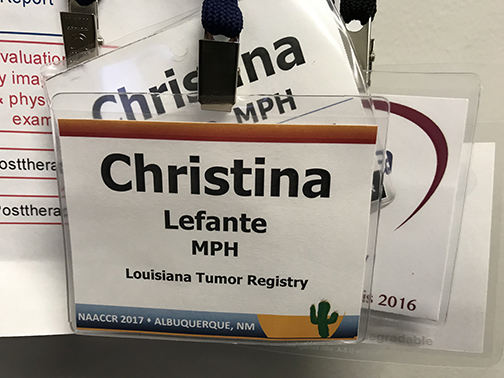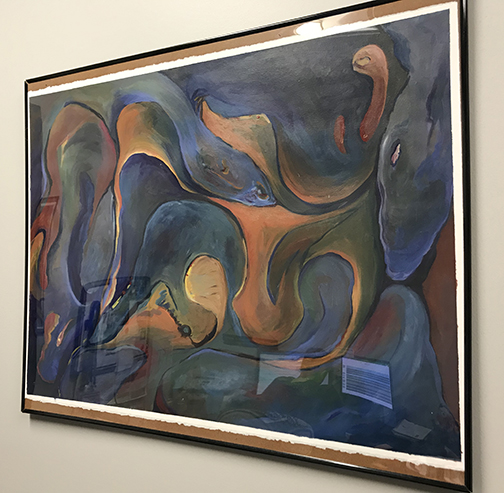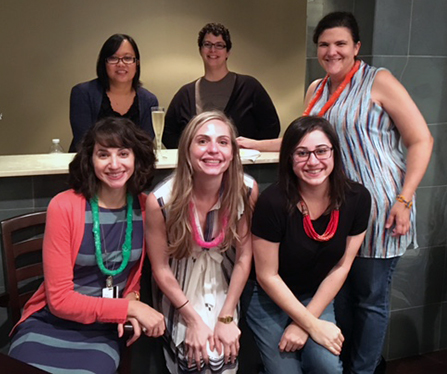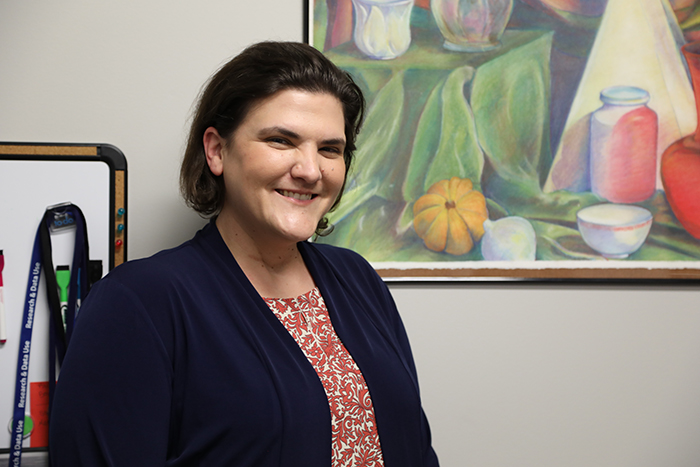That diagnosis began a whirlwind of what Tina calls craziness -- doctor's appointments, six months of chemo every other week, and after a short break, a month of radiation every day. It also began her introduction to cancer statistics. Her father, a biostatistician, explained that a 95% 5-year survival rate meant that 95% of the people diagnosed with her type of cancer were alive five years later. When her world seemed to be blowing up, that reassuring statistic gave her some sorely needed perspective.
As you might imagine, Tina's cancer diagnosis changed her life. It also laid the groundwork for her future career, even though it took her a while to realize it. "I was going to be an artist, and I did study art in college. My undergraduate degree is in print-making. There’s not much you can do with lithographs, so I taught art for two years at a local high school. I realized that teaching wasn’t for me. Ever since I was diagnosed, though, I've been interested in survivorship issues. I went through a period when I was searching internally, asking what am I supposed to do now. When I was talking with my parents about the kinds of things I thought I might like, my father said, 'that sounds like public health'. I decided I wanted to study epidemiology and to see if they’d take a print-maker/art teacher."

Today, Tina is a certified tumor registrar and a follow-up and special studies coordinator. She follows thousands of cancer patients from the time they are diagnosed until they die -- from whatever cause, including old age. It is part of survival data, crucial to learning about the unique issues cancer survivors experience to either prevent or address them. Since more people are surviving cancer these days, research studies are increasingly focusing on their needs.
"Since we are a SEER registry, we are required to follow everyone from our reference date of 2000. Anyone diagnosed from 2000 onward, we have to follow for the rest of their lives. That means that every year, I have to update each individual’s status."
She gathers information from a variety of sources, including death certificates. "For those individuals the state says died of cancer and we have nothing in our records, we have to follow back, and that's one of the ways we do case finding, one of the ways we catch cases that may have slipped through the cracks."

Tina recently worked with the CDC on a follow-up study about cancers associated with the human papillomavirus (HPV) – cervical and oral cancers. Ten years ago, the original study documented the HPV strains found in cervical cancers. The follow-up study seeks to find out whether there is has been a change in them in the ten years since the HPV vaccine has been available.
Typically, the CDC or NCI recruit several cancer registries to get a cross sectional analysis of what's going on in the country. "A new study is a Virtual Tissue Repository to see if we can work as the honest broker between pathology labs and researchers. We are one of seven participating registries, including those in Iowa, Kentucky and Utah."
Even though she has found her purpose, the complexity and importance of her work is often unrecognized.
It's even harder to explain what she does for a living. The conversation Tina and her brother had about her job with an acquaintance last Christmas ended like this.
"Uh, cancer?" the acquaintance finally asked. To which Tina replied, "Yep, cancer." At which point Tina’s brother chimed in, "And she’s not just a registrar, she’s in the registry!"


